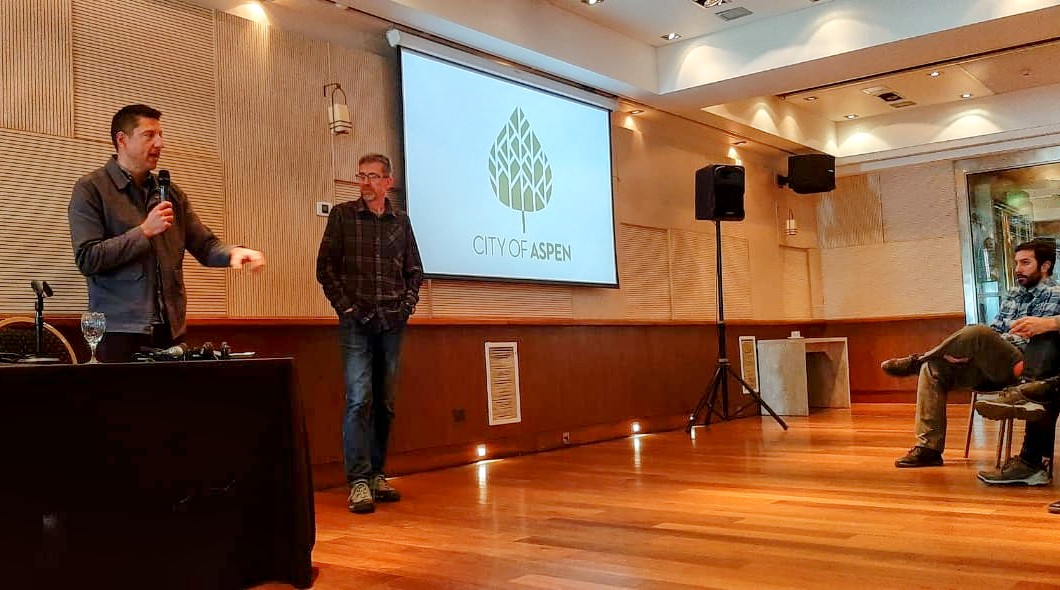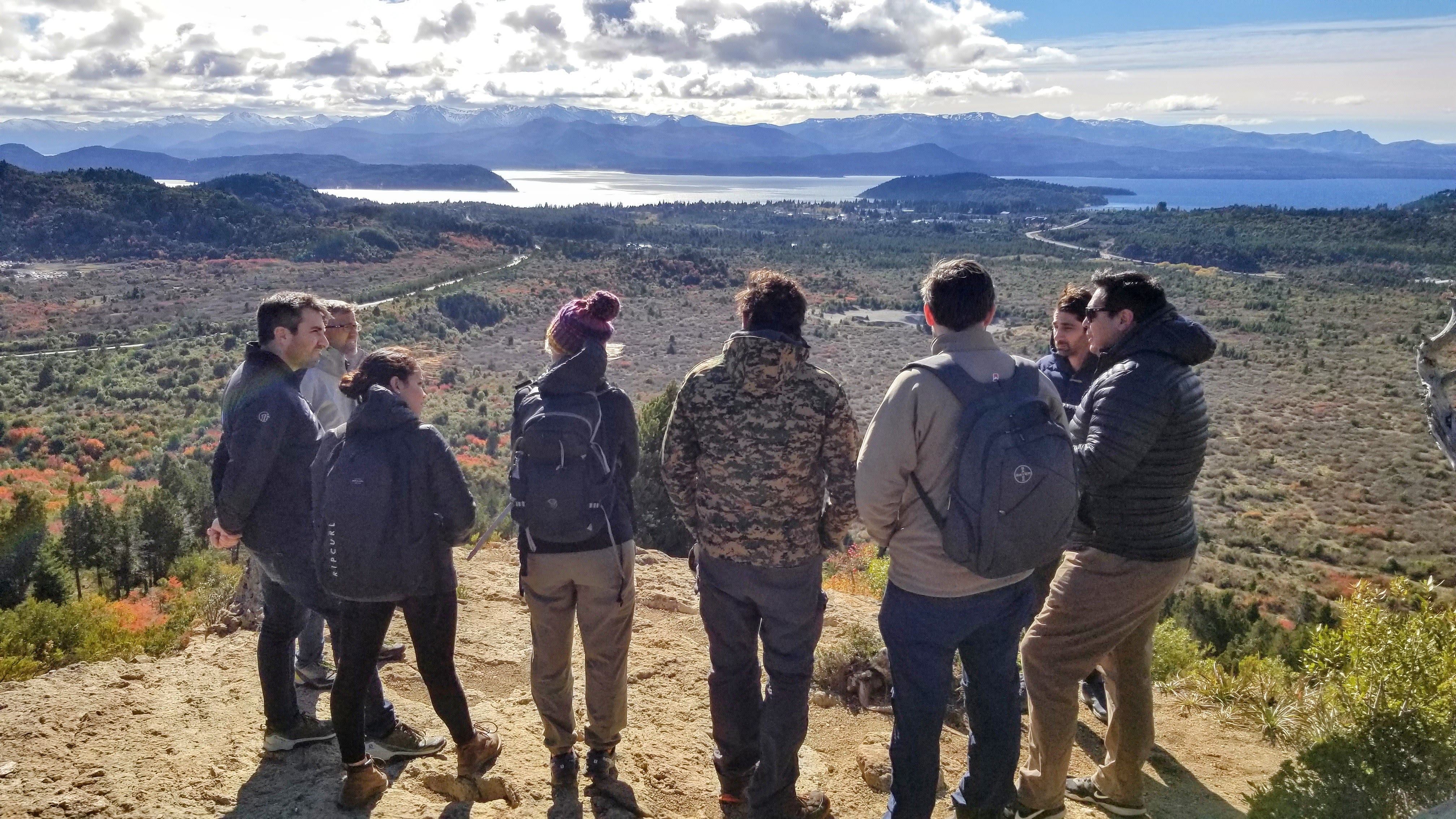City’s parks and rec officials visit Sister City Bariloche to consult on how manage a 7,000-acre piece of open space just outside of city
A recent trip by the city’s top parks department officials to one of Aspen’s sister cities, Bariloche, Argentina, is evidence that the importance and complexities of open space management is shared across continents.
Mike Tunte, the city’s landscape architect and Austin Weiss, the city’s parks and recreation director, traveled to Bariloche in May at the invitation of Diego Cannestraci, a park superintendent for Nahuel Huapi National Park.
He requested some consultation on how to go about a management plan for a 7,000-acre park known as “Parque Central.”
Situated about 15 minutes north of Bariloche and along the shores of Nahuel Huapi Lake, the government-owned land attracts all kinds of recreational activity including soccer, hiking, motocross, mountain biking, family picnics and more.
“There’s no management of this property right now and that’s the problem,” Weiss said, adding activity like illegal forestry and the formation of bandit trails are some of the issues facing Cannestraci and his fellow recreationalists. “One of their biggest challenges is to take a step back, do public outreach and build community buy-in.”
Cannestraci was in Aspen in 2019 because of his connection with Lala Caffarone, who is from Argentina, lives in Aspen and is one of the coordinators for Aspen Sister Cities Bariloche program.
“He wanted to know about parks management and he said that Aspen is a good example with its trails and open space,” Caffarone said. “That’s when we started talking about a collaboration.”
Cannestraci met with Weiss, Jeff Woods, who was then parks and rec manager, and Tunte to talk about the project.
They showed Cannestraci around to several parks and open spaces in the area to give him an understanding of the projects the community has undertaken. They also shared creative ideas for park design, according to Weiss.
They had agreed it would be worthwhile for the Aspen delegation to visit Bariloche and help Cannestraci navigate the landscape of open space management.
The trip was set for the spring of 2020, but the onset of the pandemic stopped the plan in its tracks.
For the next two years, Tunte and Weiss met with Diego and his team via online meetings and discussed their project at length, including many of the challenges and opportunities they were faced with.
Caffarone and longtime Aspen Sister Cities liaison Griff Smith also were involved in the discussions of the unique challenges of land conservation in Argentina and helped them prepare them for the trip.
Weiss and Tunte, who traveled with Caffarone, arrived on May 7 in Bariloche and got straight to work with a visit to the park and started engaging with the project’s stakeholders.
Each day was packed with site visits and meetings, including a presentation to user groups, City Council and local community members, according to Weiss.
Weiss and Tunte soon realized that the recreation community in Bariloche is like Aspen, with each user group passionate about their interests and the protection of the land.
“One group said, ‘How do we run out the motorcyclists?’ and we said, ‘They have to have a seat at the table,’” Weiss said. “We really encouraged them to go overboard with public outreach and get the community passionate about the land.”
The community engagement process is just one challenge facing Cannestraci’s group — there also are political challenges that add to the complexity of issues ahead of them, Weiss said.
There is no organization that oversees it and therefore no resources to manage it.
Weiss said it’s a somewhat similar situation to Hunter Creek Valley and Smuggler Mountain before local governments, nonprofit groups and conservationists bought several parcels of land and created a dedicated open space and management plan for the area.
Cannestraci is now taking on the Parque Central project from a personal standpoint as an avid mountain biker.
“Mike and I joked that he is the Mike Pritchard of Bariloche,” Weiss said of the executive director of the Roaring Fork Mountain Bike Association who has been heavily involved in management plans of open space in the valley.
Caffarone, who owns a home in Bariloche and uses the park frequently with her family, said a management plan can lead to better experiences for all users.
“It has some potential,” she said. “How can we use it in a better way and preserve it and take care of it for the future?”
The Sister Cities professional exchange was paid for by Bariloche and was beneficial for Tunte and Weiss as they brought back new ideas and perspectives for park development and open space preservation, Weiss said.
They saw many examples of how Bariloche has been able to mix multiple uses, including private commercial leases, land conservation and public recreation in municipal and national parks.
“It’s interesting that Bariloche is faced with many of the same challenges that many mountain communities, including ours, have seen since the pandemic with increased pressure on public lands and significant influx of new community members and visitors,” Weiss wrote in an update to Aspen City Council. “We were able to share ideas regarding public outreach models that we have had success with here in Aspen and to help them navigate what is probably their largest hurdle towards community support. We also spent a lot of time discussing the more technical challenges and opportunities regarding trail network design, public access, public transportation and natural resource management”






Comments are closed.